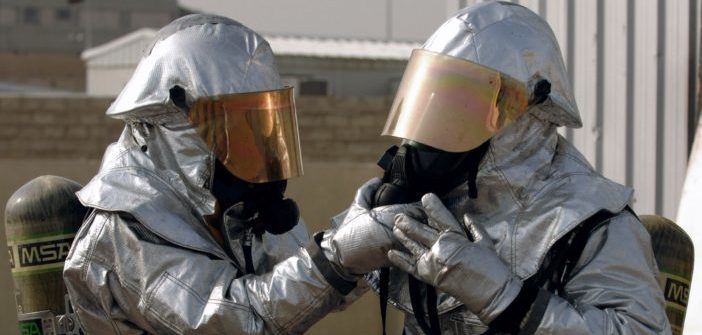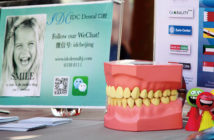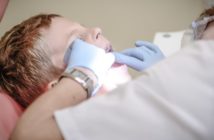Have you ever experienced a subway journey with other passengers who, apparently, just got up that morning and didn’t bother to brush their teeth? Or maybe a conversation with a taxi driver whose deadly breath made you catch your own?
Maintaining pleasant breath is part of having good oral hygiene, and confidence too. If you happen to know someone who has bad breath, do yourself a favor and tell them to see a dentist, because it may be a symptom of a more serious chronic illness.
Monday (August 6) marks Fresh Breath Day, a holiday that should be celebrated every day! That’s the topic for this edition of Doctor’s Corner, where we invited Dr. Safar Baisov, one of the general dentists at IDC Dental, to discuss more about bad breath and how we can prevent it.
What causes halitosis or bad breath? How does drinking coffee, tea, or water affect the breath?
Baisov: Most of the cases (about 85-90 percent) of bad breath are the result of the degradation of organic substances by anaerobic bacteria in the oral cavity. The cause can be found in the mouth, with the presence of tongue coating as the leading factor, followed by gingivitis and periodontitis (gums infection), teeth pathologies (cavities which can contain decaying food remaining, food stuck in between the teeth as a result of teeth overcrowding or unsatisfactory oral hygiene), poorly maintained dentures, dry mouth, or oral cancer. Also, drinking coffee, tea or water doesn’t affect the breath.
Is having bad breath a symptom of a chronic or serious oral health issue?
Baisov: In about 10-15 percent of cases, the cause is extra-oral and can be a symptom of chronic conditions such as diabetes mellitus, liver or kidney disease, or certain cancers. Bad-smelling metabolites can be formed/absorbed at any place in the body and be transported by the bloodstream to the lungs. Exhalation of these volatiles causes halitosis. In some cases, malfunctions in the digestive system like stomach infections, ulcers, or gastroesophageal reflux, in which stomach acids abnormally flow back up to the esophagus and throat, can cause halitosis too.

Oral antiseptics like mouthwashes have ingredients that inhibit the growth of bacteria which cause bad breath.
A common method of maintaining fresh breath is by chewing mint gum or eating candies, as well as gargling with mouthwash. But are they really effective in removing bad breath?
Baisov: Such methods can only mask bad breath for a short period of time, but the main reason for the condition – bacteria and plaque – are still there. Using mouthwashes alone cannot completely remove bacteria.
Brushing and flossing the teeth are essentially your main methods for maintaining oral hygiene, that is, removing bacteria that can cause tooth cavities. In addition, tongue scraping and mouthwash should be added as daily oral care to fight bad breath.
People may not know that they have halitosis (because it’s a certain kind of body odor, which makes it difficult for them to smell it). So when then does one need to see a dentist about bad breath?
Baisov: There are a few methods to know if you have bad breath:
– the smell of a metal spoon after scraping of the tongue;
– the smell of a toothpick or floss after inserting into interdental space;
– the smell of saliva on a spoon after drying; or
– by licking the wrist and smelling the area after the saliva dries out.
For people who feel they have bad breath, they need to do proper daily oral hygiene including brushing, flossing, tongue scraping, and mouthwash, and self-diagnose to see if there is any progress. If this method does not help, it is time to see a dentist for a professional diagnosis.
Are there any natural ways to keep fresh breath?
Baisov: The best practice is, again, maintaining good oral hygiene, as well as visiting your dentist regularly to keep your teeth checked and treated on time.

About the Doctor
Dr. Safar Baisov is a general dentist and cosmetic and restorative specialist at IDC Dental. He received his Doctorate of Dental Surgery in Ukraine. He is available for consultations from Sunday to Thursday, 9am-6pm.
Photo: skeeze via Pixabay; Jagwire via Wikimedia Commons; courtesy of IDC Dental




